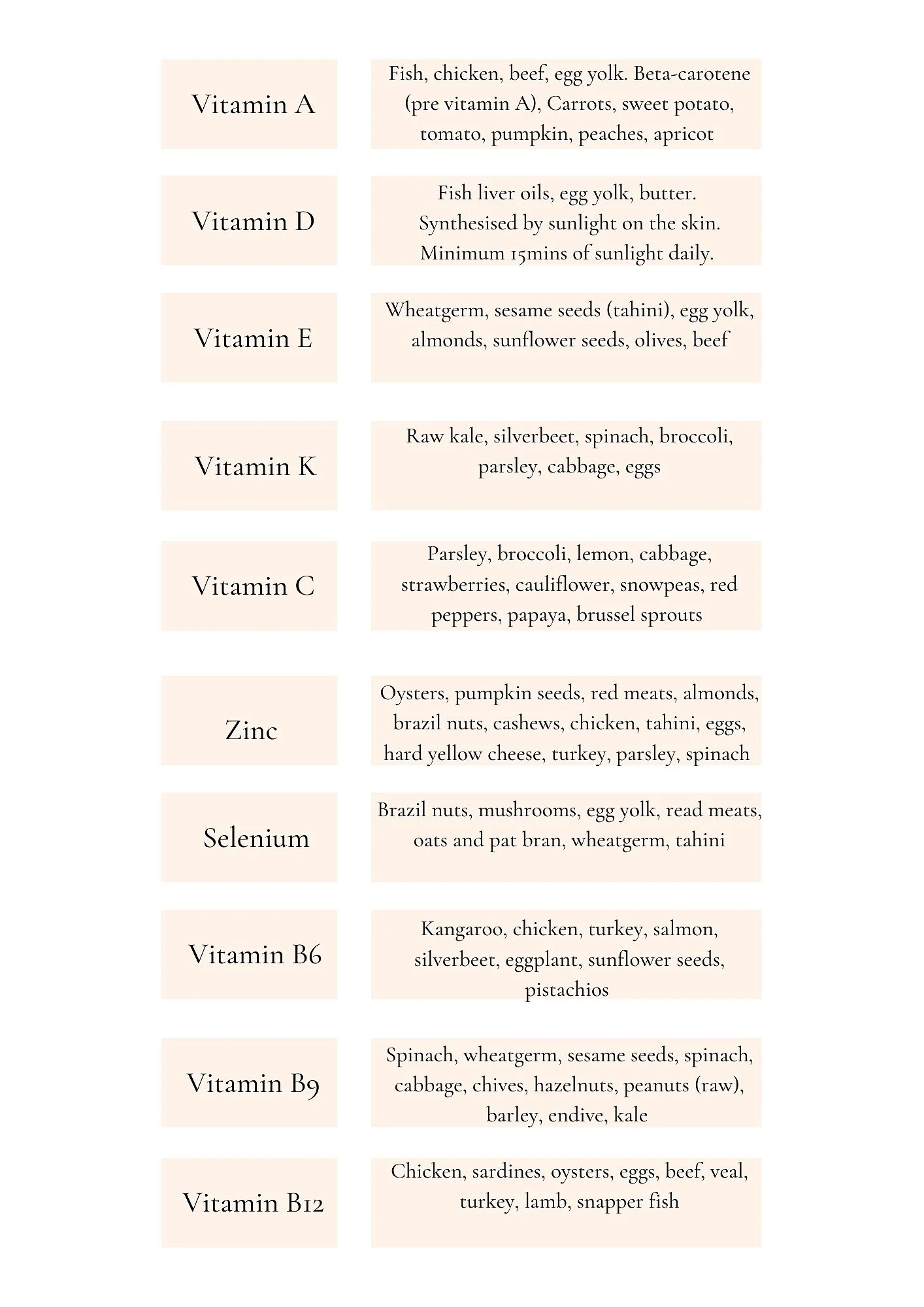Nutrients Required for Your Immune System’s Cells
In the last post you would have learnt all about how the cells of our immune system function. This post is all about the nutrients that we require for the immune system cells to work effectively. If you haven’t read the previous post, check it out here.
In this post I have listed the key nutrients and the role that they paly with these cells. At the bottom of the post, you will see a table that outlines food sources of all of the nutrients mentioned in this post. Please note, this is not an extensive list of the nutrients, just the most important and prominent ones that our immune system loves.
The reason I wanted to write this post is for you to get an understanding of how much our immune system requires adequate nutrition to be able to function well. When we are sick it is so tempting to became lazy and not look after ourselves properly. Obviously, there are circumstances where we are too sick to be able to cook ourselves nourishing food. However, if you are capable of doing so, your immune system will hank you for it! You will recover quicker, feel much more energised and you will be less likely to have symptoms linger for too long.
The Nutrients:
Vitamin A
- Helps to kill infected cells
- Improves our first line of defence by enhancing the integrity of tissues that line our sinuses and respiratory tract
- Increase the activity and number of Natural Killer (NK) cells, which helps to stop the spread of infection
- Decreases the production of inflammatory chemicals involved in the immune response
Vitamin D
- Plays an important role in the function of T cells which help our adaptive immune response
- Enhances the anti-microbial activity of NK cells, Monocytes and Neutrophils
Vitamin E
- Increases antioxidant protection for immune system cells. Protects the cells against damage from the killing off of infection
- Increase the ability of cells to kill infective cells
- Increases the production of T cells which regulate the adaptive immune response
Vitamin K
- Is anti-inflammatory, reducing the amount of inflammatory chemical produced in the killing off of infection
- Antioxidant protection for immune system cells
Supports immune system balance
Vitamin C
- Increases antioxidant protection for immune system cells. Protects the cells against damage from the killing off of infection
- Increases antibody production. Antibodies are special proteins made by the immune system that help to fight off infection by alerting the immune system to infected cells.
- Increases the production of T cells.
- Regulates the activity of NK cells.
Zinc
- Increases activity of T cells
- Antioxidant protection for immune system cells
- Involved in the function of macrophages which help to ‘clean up’ after an infection
- Improves our first line of defence by enhancing the integrity of tissues that line our sinuses and respiratory tract
Selenium
- Antioxidant protection for immune system cells
- Increases antibody production
- Increases NK cell activity
Vitamin B6
- Helps with the growth and development of lymphocytes which help to remove infection
- Increases antibody production
- Helps with T cell activity
Vitamin B9 (Folate)
- Increases the number of immune cells produced in an immune response
- Increases antibody production
- Enhances the activity of NK cells
Vitamin B12
- Enhances the activity of neutrophils, the main cells of the immune system.
- Enhances the activity of NK cells


